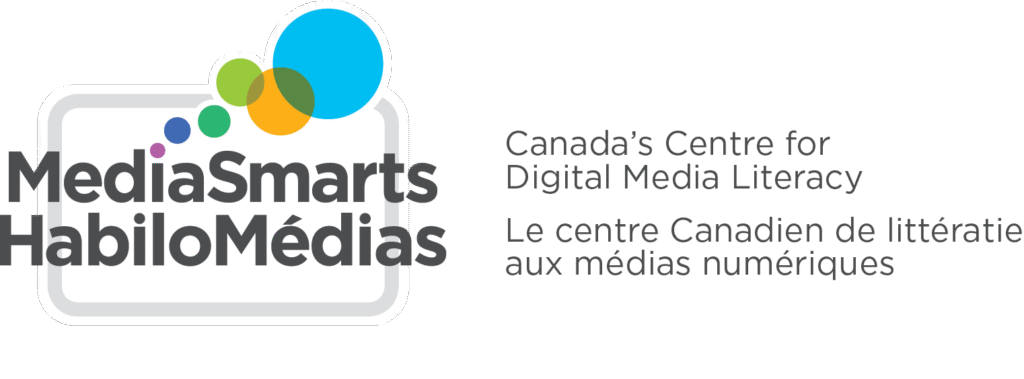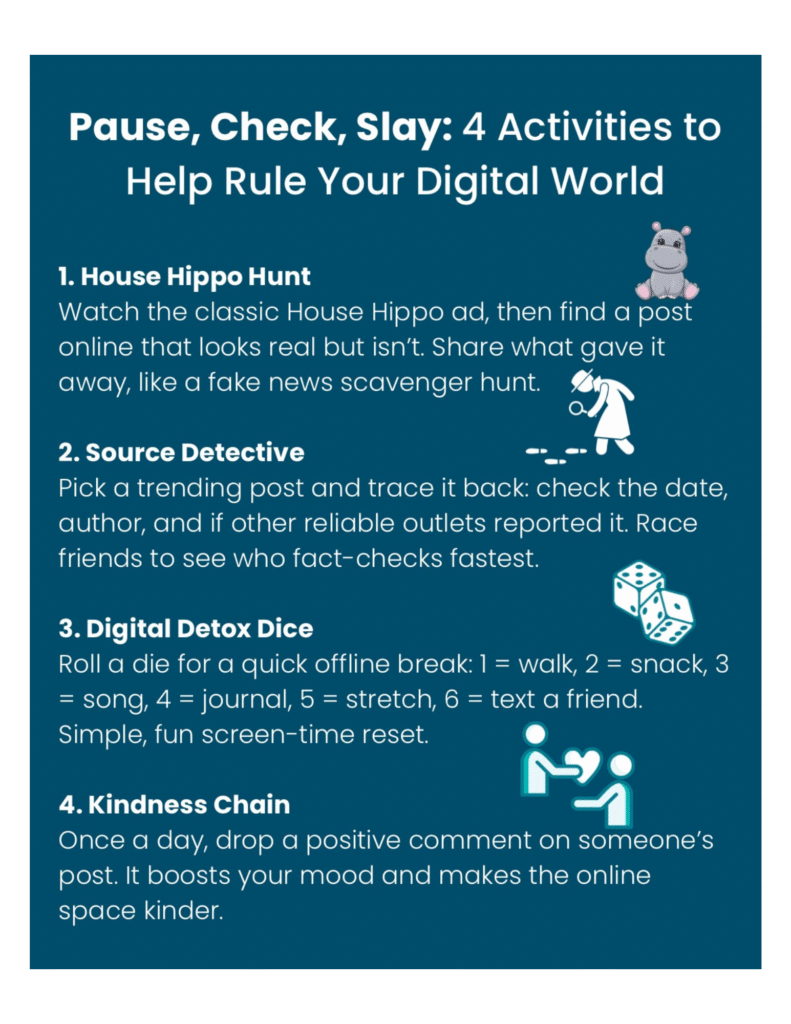In today’s world, you’re not just scrolling through content, you’re shaping it. Young people aren’t only media consumers anymore; you’re creators, trendsetters, and community builders. Every post, story, and comment has the power to spark conversations and shift perspectives.
But let’s be real: the online space isn’t always chill. Between fake news, clickbait, and algorithms pushing extreme content, it’s way too easy to get misled or overwhelmed. That’s where media literacy and critical thinking come in. Tools that keep you safe online, help you cut through the noise, and make sure your voice stays real, strong, and impactful.
At YouthSpeak, we believe young people have the power to shape the online world for the better. That’s why we’ve teamed up with MediaSmarts, Canada’s Centre for Digital and Media Literacy, to share practical tips that help you navigate the digital space with confidence. Together, we’re breaking down how you can spot misinformation, set healthy boundaries, and use your voice to create a more positive and authentic online community.

Tips for the Next Time You’re Online
1. Pause Before Posting (The House Hippo Throwback)
Remember that classic Canadian “House Hippo” ad? In the ad, a tiny hippo appeared to be sneaking around someone’s kitchen at night, eating crumbs off peanut butter toast, until it went back to sleep snuggled into a blanket on the closet floor. It looked so real, until the reveal: totally fake. The lesson still applies today. Just because something seems believable doesn’t mean it is.
Before you repost or share, take a second to pause and ask: Does this actually make sense? That quick check can stop fake info from spreading and keep your online voice strong and credible.
2. Verify Sources Like a Detective
Think of yourself as a digital detective. Misinformation crumbles fast when you know what to look for:
- Check the date, author, and website.
- Cross-check with reliable outlets
- Look for original reporting, not just blurry screenshots.
MediaSmarts calls this flexing your “digital literacy” muscles. It’s all about sharpening your critical thinking so you don’t get played by fake news.
3. Set Boundaries | Beat “Online Overdrive”
Social media is designed to keep you scrolling, but too much can overload your brain and blur the line between what’s true and what’s just loud.
Try setting small boundaries:
- Take “offline breaks” to recharge.
- Mute notifications from apps that drain your focus.
- Balance screen time with real-life convos.
These are the kinds of habits MediaSmarts encourages. Making space for yourself so you can stay sharp, calm, and in control.
4. Be a Digital Citizen (Lead with Empathy)
Media literacy isn’t just about spotting lies. It’s about how we treat each other online.
- Respect different perspectives. Remember, most people are just like you, trying their best to navigate the online space.
- Comment with empathy, not hate. Think twice before letting something get you upset, ask, is it really worth it?
- Amplify voices that spread positivity and inclusivity. Your algorithm will send you back the same.
Being a good digital citizen means building the kind of online space you’d actually want to spend time in.
5. Use Your Voice to Call Out Misinformation
Your voice is powerful. If you see fake news making the rounds, don’t just scroll past. Share a fact-check link, or even just ask: “Where did this come from?”
As MediaSmarts often highlights, youth voices carry weight in digital spaces. Speaking up helps stop the spread of misinformation and keeps online communities more authentic.
Want more tips and tools? Head over to YouthSpeak and MediaSmarts. We have resources to help you level up your media smarts and keep your voice strong, real, and positive online.

YouthSpeak is a charity organization based in the GTA, Canada that conducts assemblies and interactive workshops to help increase the resiliency of youth facing challenges today. Help support our For-Youth-by-Youth projects by donating at: https://www.canadahelps.org/en/pages/i-support-youthspeak





